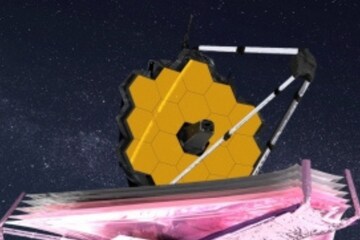James Webb Space Telescope Hit by a Meteoroid But There's Good News

Micrometeoroid strikes are an unavoidable aspect of operating any spacecraft, which routinely sustain many impacts over the course of long and productive science missions in space. (Credits: IANS)
Updated: June 15, 2022, 14:55 IST
The next-generation and powerful James Webb telescope was hit by space debris called micrometeoroid, leading to a “marginally detectable effect in the data" but has suffered no damage, according to NASA. Since its launch on December 25 last year, the Webb telescope faced four smaller measurable micrometeoroid strikes. However, this most recent “impact was larger than was modelled, and beyond what the team could have tested on the ground", NASA officials wrote in a blogpost.
“Between May 23 and 25, NASA’s James Webb Space Telescope sustained an impact to one of its primary mirror segments. After initial assessments, the team found the telescope is still performing at a level that exceeds all mission requirements despite a marginally detectable effect in the data," the blogpost read.
“Since launch, we have had four smaller measurable micrometeoroid strikes that were consistent with expectations and this one more recently that is larger than our degradation predictions assumed," said Lee Feinberg, Webb optical telescope element manager at NASA Goddard.
Micrometeoroid strikes are an unavoidable aspect of operating any spacecraft, which routinely sustain many impacts over the course of long and productive science missions in space.
